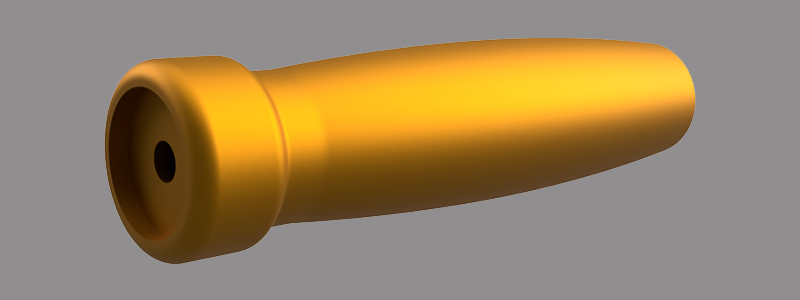Project | Make a chip hook handle
Create the toolpaths required to rough and finish a machine shop chip hook handle using Fusion.
Module overview
As a CNC lathe operator, you are frequently required to clear a large number of chip nests from your machine. To simplify this task, you have decided to create a custom chip hook through machining. You will be responsible for creating toolpaths to rough and finish a chip hook handle that will support a ¼-20 threaded rod and make it easier to safely remove chips from your CNC lathe. Additionally, you can improve your skills by completing a project practice exercise and a project challenge exercise that involve varying chip hook cap geometries and features.

Module downloads
These downloadable resources will be used to complete units in this module:
Teaching supplements
Teaching this project to students in the classroom?
Use this instructor guide to incorporate this and our other project parts into your lesson plans. You'll understand how to use CAM turning workflows to combine the chip hook handle and and cap into a chip hook tool.
Want to create custom learning playlists to share with your students?
Share modules and courses using Playlists. Once you create a Playlist, share the URL with your students and they can sign into their Autodesk Account to access. Choose and share the modules that best fit your curriculum using the steps below.
- To create a Playlist, select [+] 'Add to list' from the banner above.
- To share a list with others, set the list visibility to Public and share the link.
Need to teach the skills covered this project?
Send your students to our CAM turning self-guided courses. They can learn at their own pace, track their own progress, and earn a certificate of completion when they get 75% or more on the final test.
Machining best practices
Machining best practices supports you in the CNC machining this project. Review the process plan and cutting data for general guidelines to support you in this project. The sample setup sheet provides information about how the part was machined. Post machining, inspect your part while reviewing the supplied detailed drawing, and populate the inspection report to verify acceptable part tolerances.